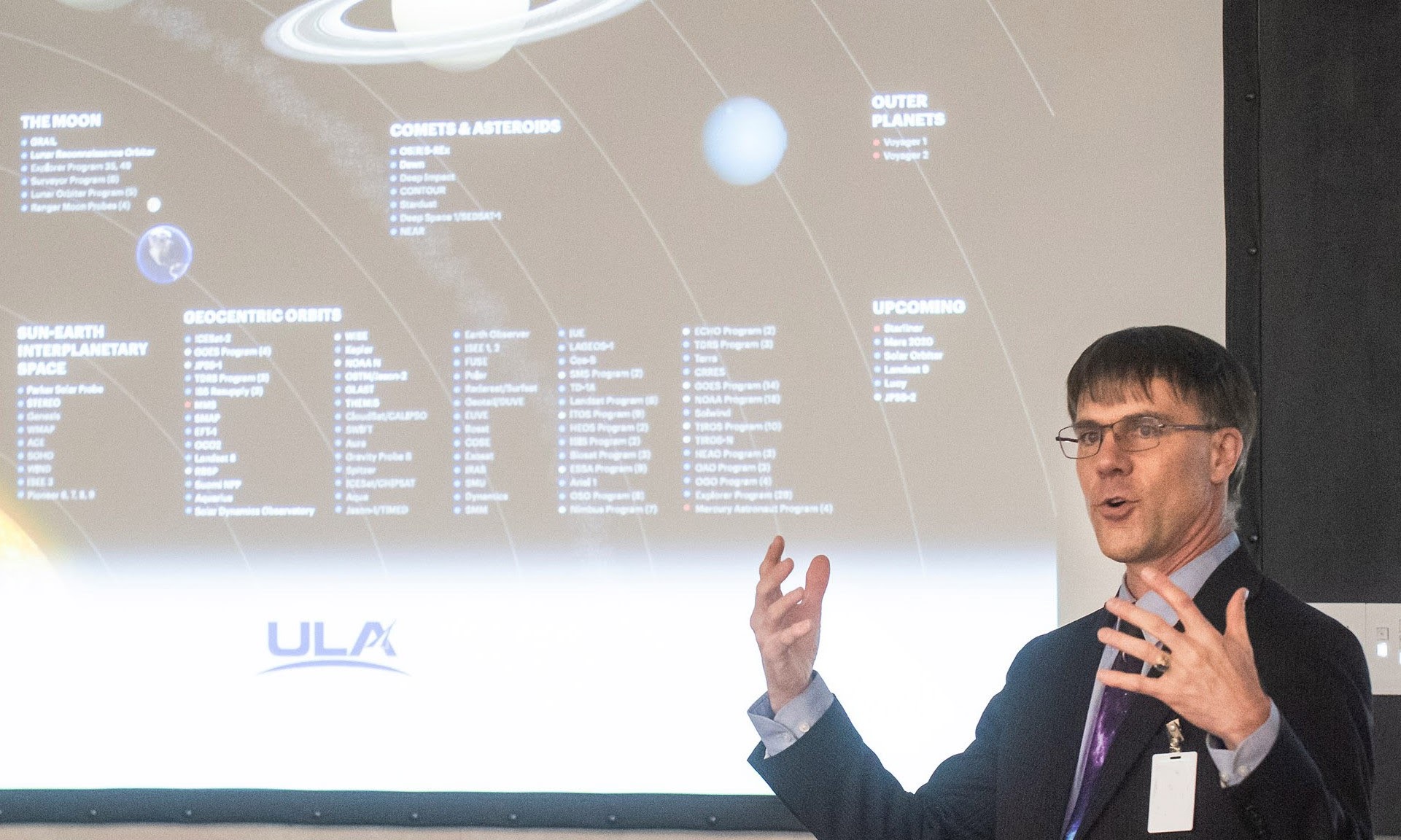The re-entry experiment launching in November 2022 aboard the Atlas V rocket pays tribute to a former United Launch Alliance (ULA) teammate who advocated for advancements in technology that would innovate launch vehicle reusability and could be used to land humans on Mars.
The Bernard Kutter Low-Earth Orbit Flight Test of an Inflatable Decelerator (LOFTID) carries his name in honor of the close work between ULA and NASA's Langley Research on the program and test. Bernard was ULA's chief scientist and Advanced Programs leader when he unexpectedly passed away in August 2020.
A small portion of Bernard’s ashes will be flown onboard the LOFTID demonstration. The ashes are contained in a small capsule, wrapped in an American flag, and placed in a compartment inside a box containing other U.S. flags to be given to team members and stakeholders after the flight. The box is installed behind the nose cone of the LOFTID re-entry vehicle. It is low mass and has no impact on the demonstration.
The LOFTID demonstration is a critical milestone for the Hypersonic Inflatable Aerodynamic Decelerator (HIAD) technology, which is part of ULA's plan to recover Vulcan Centaur's booster engines. Currently, a rigid heat shield's size is limited by the payload fairing envelope. An inflatable heat shield would allow larger heat shields in smaller spaces, enabling the heat shield to protect larger, heavier payloads.
The compact design also would allow an inflatable heat shield on Vulcan to protect booster engines re-entering the atmosphere for future re-use. The NASA program helped spark Bernard's idea for downrange, non-propulsive recovery of a booster engine – the most valuable part of the booster.
Prior to moving into Advanced Programs, Bernard supported the Centaur upper stage, including as thermodynamics lead. He built on that background in Advanced Programs, designing what came to be called the Advanced Cryogenic Evolved Stage (ACES) – the “concept car” version of the upgraded Centaur V that ultimately will enhance the performance and capabilities of the Vulcan rocket.
Bernard also was instrumental in development of “smart propulsion” – a future architecture for Vulcan that will eliminate some subsystems and enable long-duration missions.
Bernard had a passion for space, which he summed up as: “I want to help humans use space to better our lives and enhance our understanding of the universe.”
Bernard’s contribution to the future of space wasn’t limited to his work at ULA and prior companies; he was heavily involved in the American Institute of Aeronautics and Astronautics (AIAA), the National Space Society and other organizations, and he was an in-demand presenter at various conferences ranging from very technical settings to those reaching a general audience.
Bernard’s presentation at the North East Astronomy Forum in 2016.
His connections and work with so many across the industry helped ULA identify individuals, companies and other organizations to be part of ULA’s CisLunar Marketplace, a gathering of companies to work on roadblocks to creating a self-sustaining space economy.
“Bernard’s vision for technology and exploration was an inspiration for all of us at ULA and many across the space community,” said Tory Bruno, ULA president and CEO.
In addition to his vision and commitment to creating humanity’s future in space, Bernard never lost sight of the value of each person, each function in bridging the gap between possibility and reality.
Bernard left behind a loving family, including his wife Donna and children Sean and Kayla. He was very adventurous and loved to hike, ski, and travel – making the most of his life on Earth while charting a course for humanity in space.
“Bernard was the most optimistic and persistent person I’ve ever worked with,” said Chris Deel, ULA vice president, Engineering. “He was determined to create a better path for humanity and chart a path for humans to explore the universe. We will miss his vision, influence, and friendship.
Learn more about the Atlas V JPSS-2/LOFTID launch
See more photos in our JPSS-2/LOFTID album

 Back To Blog List
Back To Blog List



